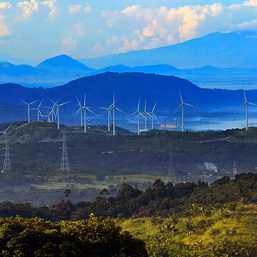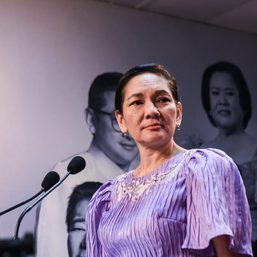SUMMARY
This is AI generated summarization, which may have errors. For context, always refer to the full article.

MANILA, Philippines – As the Philippine government proceeds to revise free, prior, and informed consent (FPIC) guidelines, several indigenous people and civil society organizations demanded “effective and genuine consultations.”
“Any move to rush the rules should not be allowed, and the National Commission on Indigenous People (NCIP) should facilitate inclusive consultations with its core constituency: Indigenous Peoples,” read the statement sent to NCIP Chairperson Jennifer Sibug-Las on Tuesday, June 11.
It was signed by 64 organizations and 102 individuals, including the Teduray and Lambangian Ancestral Domain Claim, Non-Moro Indigenous Peoples Center, and Sabokahan Tomo Kamalitanan (Unity of Lumad Women).
Last May 14, 2024, the National Commission on Indigenous People (NCIP) held a consultation in Quezon City with concerned agencies, civil society groups, academe, indigenous people, mining and energy firms.
According to the NCIP, “members of several indigenous cultural communities/indigenous peoples together with their respective indigenous peoples mandatory representatives” attended the consultation.
There were representatives from the University of the Philippines Los Baños, Legal Rights and Natural Resources Center, and Episcopal Commission on Indigenous Peoples, among others, according to one of the attendees Rappler talked to.
‘Rushed’ process?
The groups, however, said that that was the first time such a consultation was organized with indigenous peoples in connection with the FPIC revision.
The revision process started back in 2021 when the NCIP created a technical working group to review the guidelines established in 2012.
They said they were surprised when the NCIP announced they were releasing the new rules a month after the consultation in May.
“Although CSOs (civil society organizations) provided some comments before the consultation, there is little indication that these will be incorporated into the final rules,” the collective statement read.
For “genuine’ consultation” to take place, the groups said the NCIP should extend the duration and coverage of the process.
“The NCIP should also consider the distinct customary laws of each Indigenous Peoples and their specific struggles,” they said.
“This includes seeking the effective and inclusive participation of communities in geographically isolated and disadvantaged areas and the Non-Moro Indigenous Peoples in the Bangsamoro Autonomous Region in Muslim Mindanao.”
FPIC is a process that allows indigenous people to give or withhold consent over activities that would exploit or affect their ancestral domains.
It allows indigenous people to exercise their right to self-determination, protect their lands and identities, both of which are closely tied to each other.
This is enshrined under Republic Act 8371 or the Indigenous Peoples Rights Act of 1997.
“FPIC is an essential right of indigenous peoples. Without it, recognition of their ancestral land and domain rights is meaningless,” environmental lawyer Tony La Viña, who was one of the individual signatories, said.
“When it is disregarded or diminished, as the proposed changes will do, you invite social conflict and resistance.”
We emailed the office of Sibug-Las for comment on this matter but has yet to receive a response as of writing. We will update this story once the NCIP responds.
“In closing, the undertaking guaranteed that the exercise of ICCs/IPs Rights to determine and decide priorities for development were upheld, uplifting their interests and well-being in accordance to their belief, customs and traditions, and institutions,” the NCIP said last May.
Who will benefit?
The revised FPIC guidelines accommodates the Philippines’ bid to speed up energy generation. The NCIP is under pressure to introduce a timeline specific for projects covered by the Energy Virtual One-Stop Shop Act (EVOSS).
Early January, the Energy Regulatory Commission (ERC) held a meeting with the NCIP to touch base.
The ERC emphasized that they recognize and respect “the right to ancestral domains/lands of the indigenous cultural communities or indigenous peoples, specifically their right to ownership.”
In the new rules, where a new section was written specifically for EVOSS projects, failure to release the necessary certificates for them within the specified period will mean automatic approval of their applications.
Aside from energy, the mining industry is set to be affected by the changes in FPIC that will be implemented.
Many of the mineral deposits in the country lie in ancestral domains. As such, even the law indicates a specific royalty from mining firms that operate within ancestral domains. – Rappler.com
Add a comment
How does this make you feel?



![[ANALYSIS] Why do we pay higher power rates when we have power outages?](https://www.rappler.com/tachyon/2024/07/tl-higher-power-rates-higher-power-outages.jpg?resize=257%2C257&crop=401px%2C0px%2C1080px%2C1080px)



![[OPINION] To the residents of sinking Metro Manila, is there relief?](https://www.rappler.com/tachyon/2024/07/tl-flood-legal-relief.jpg?resize=257%2C257&crop=268px%2C0px%2C720px%2C720px)





![[OPINION] Grading Marcos admin’s performance on the climate agenda](https://www.rappler.com/tachyon/2024/06/grading-marcos-performance-climate-agenda-june-25-2025.jpg?resize=257%2C257&crop=441px%2C0px%2C1080px%2C1080px)








There are no comments yet. Add your comment to start the conversation.